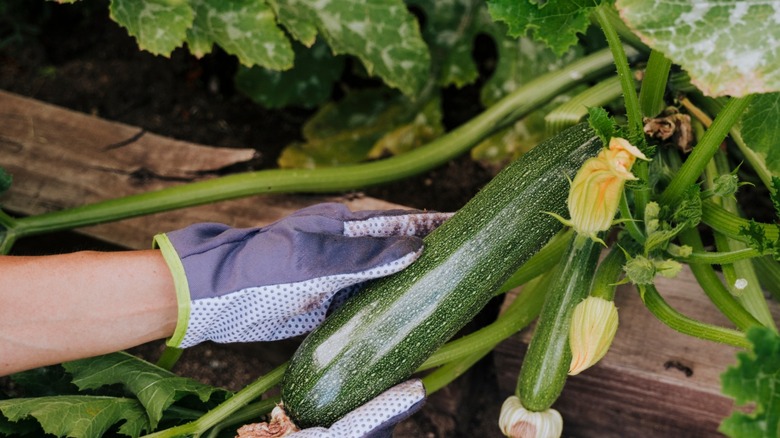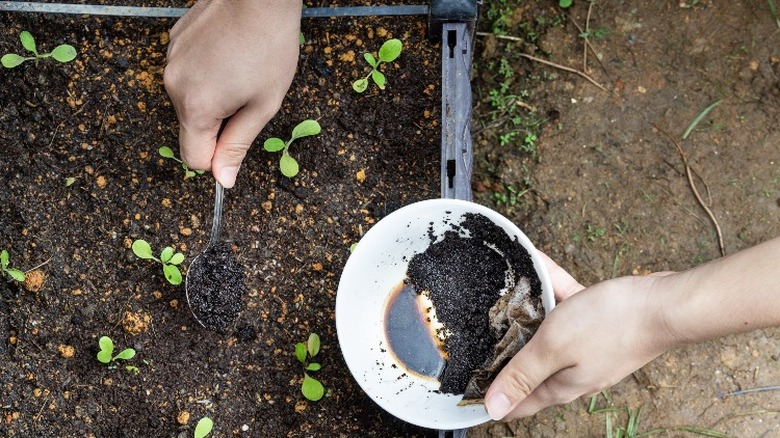The Ingredient For A Thriving Zucchini Plant Is Already In Your Kitchen
Instead of throwing away your used coffee grounds after finishing your daily brew, consider the benefits of adding them back into your garden. You can turn a regular kitchen waste product into a useful fertilizer supplement for hungry zucchini plants. Zucchini plants naturally require many nutrients to thrive, whether they are grown in the ground or in a container. Ideal growing conditions for zucchini include soil with a slightly lower pH that retains moisture. Coffee grounds can help increase the acidity of your soil in the short term, plus they break down into useful nutrients.
When spread in a vegetable garden, spent coffee grounds offer a slight boost of nitrogen and other beneficial nutrients to the soil. The benefit of uncomposted coffee grounds for amending the soil is that it slowly releases nitrogen over time. Instead of a sharp increase that might be detrimental to your zucchini plant, you can count on long-term soil improvement. The composition of coffee grounds also includes several micronutrients, like zinc, iron, and copper, that most plants depend upon. Adding this ingredient to your gardening routine could be another easy tip for growing thriving zucchinis.
How can coffee grounds improve the growing conditions for better zucchini?
To use old coffee grounds around zucchini plants to the best advantage, Washington State University suggests not layering it on top of the soil as a mulch. A thick layer of coffee grounds too easily compacts on top of the soil. Instead, try a thin layer of grounds paired with a thicker layer of organic mulch on top. Research also suggests that the caffeine that remains in used coffee grounds can swiftly repels slugs.
The downside of applying coffee grounds as a fertilizer in the garden is that freshly used coffee grounds only consistent of about 2% nitrogen. For a more well-rounded fertilizer using this kitchen leftover, you could add them to compost to provide the most nutrients for your zucchini. However, if you do not have the time to create a DIY compost pile at home, your zucchini can still see benefits. The best way to help zucchini growth and nutrition is to provide a well-balanced fertilizer in tandem with coffee grounds so that all of the plant's nutritional needs are met. Over time, natural processes break down the coffee grounds and improve the soil, encouraging better zucchini production.

